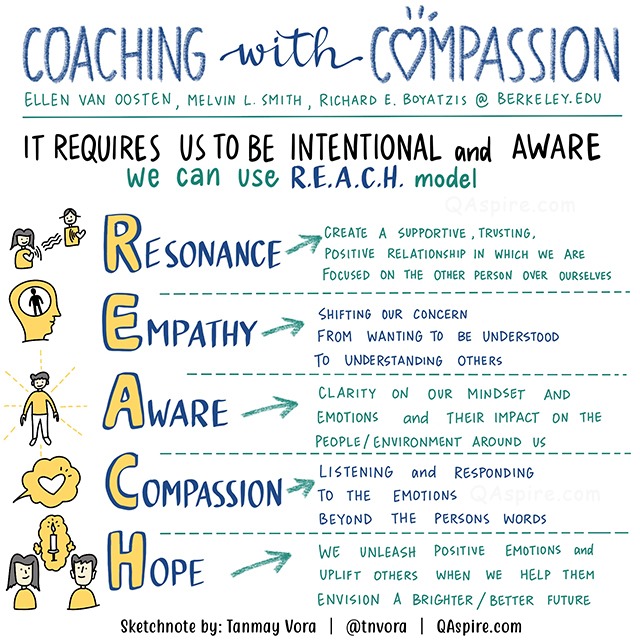Leading in Difficult Times: Coaching with Compassion
Tanmay Vora
Constantly giving directions or trying to coerce people rarely brings out the best in them. The need to exercise compassionate leadership magnifies in uncertain times like these when people are anyway struggling to find a balance between work, related anxieties and impending uncertainties.
What if more and more leaders adopt a compassionate style of coaching their colleagues?
Let me share a story from my own experience from normal times.
In one of the product teams, we had a technical lead who was known for his consistently superior outcomes and commitment to the work. One fine day, his manager walked up to me with a concern regarding this team lead’s lack of commitment. The manager was clearly upset and wanted to give some tough feedback.
This came to me as a surprise, since I had very high regards for him over the years. I requested the team manager to cancel the feedback session, and called the team lead instead for a short discussion.
After some small talk, I asked him a few open ended questions with an intent to listen:
-
How have you been?
-
How’s work and life?
-
Where I can help you do better?
These three questions and a visible intent to listen opened him up. He confided to me that he was going through a major relationship issue which took a toll on his mental health and ability to contribute. After that conversation, I approved his request of working shorter hours for a few months, till he resolved the issues. He admitted that he felt lighter after speaking with me.
Later, once he overcame his domestic challenges, we systematically coached him again into the context through regular one to ones. He started shining bright again. He led a new team on a new technology to deliver excellent results thereafter.
At that difficult time, the last thing he needed was a tough feedback. He needed compassion, empathetic listening and support. It is that simple, yet managers often forget to look deeper into people and their context.
I was reminded of this story when I read an article titled “How to Support the People You Lead in Times of Uncertainty” by Ellen Van Oosten, Melvin L. Smith, Richard E. Boyatzis at Berkeley Greater Good.
Here is an excerpt:
Connecting and coaching with compassion activates an alternate physiological state, known as the “positive emotional attractor.” When we create resonant relationships with others, positive emotions are unleashed and the person is likely to feel more confident, hopeful, and open to considering new ideas. This also creates a sense of renewal for both parties in the relationship, thus reducing the negative effects of stress.
The article offers REACH model to coach with compassion. Read the full article and here is the sketchnote summary of the REACH model.
I came across this article via Helen Bevan’s excellent summary on which the sketchnote is based.
[New] Raise The Bar: Pack of Sketchnotes on Leadership, Learning and Change
Having an attitude to lead and a mindset to learn are vital to thrive in a new world of work. The best leaders are relentless learners. This is a collection of 68+ powerful and actionable insights in form of high-resolution sketchnotes. These insights are packed with wisdom to help you raise the bar of leadership and learning for yourself, your teams and your organization. Do check it out.


Very nice article sir.
Thanks Indresh. Glad you liked it!